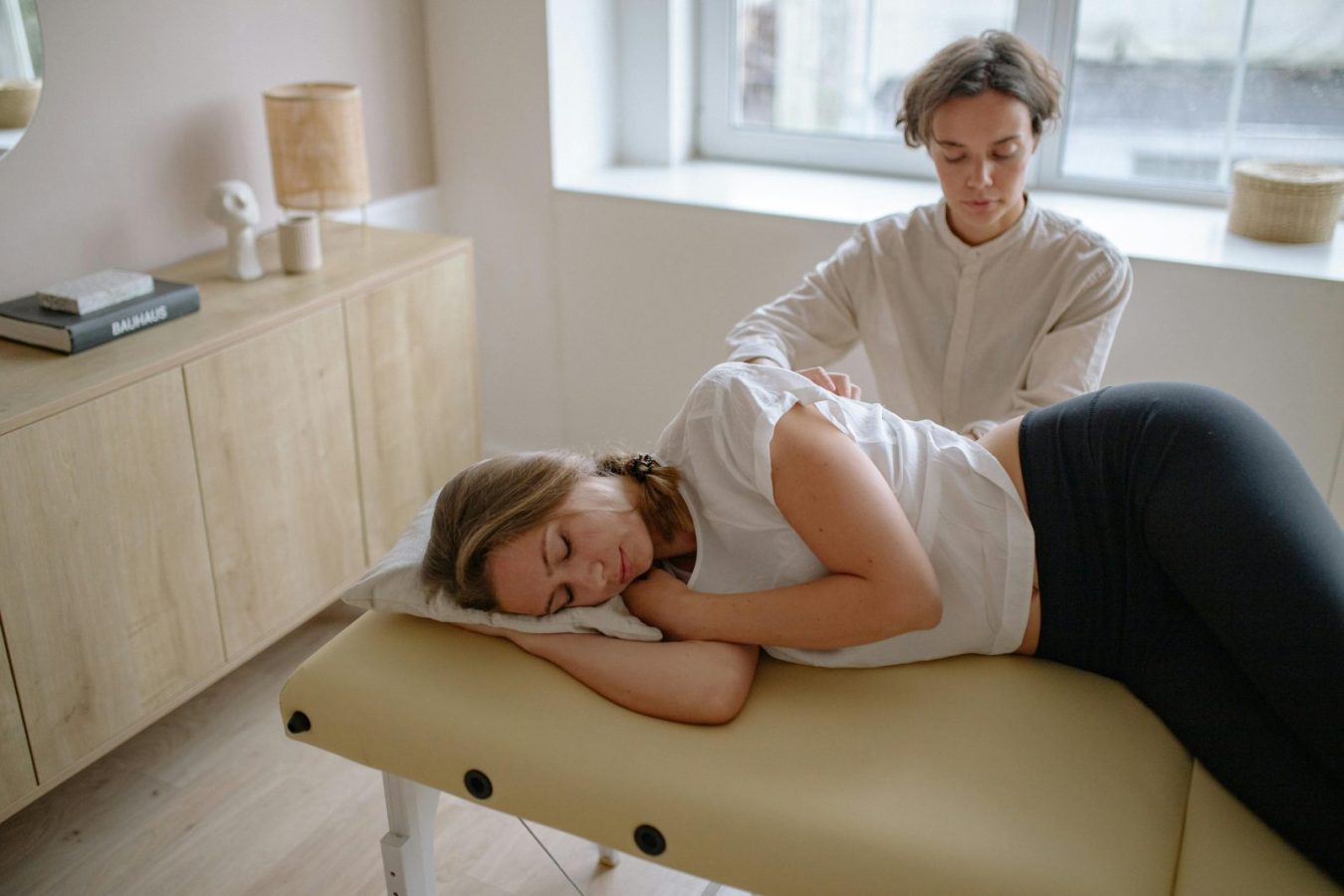Why do legs hurt at night — it’s a question many people start asking once evening pain begins to disturb their sleep. The ache, heaviness, or sudden cramps can make it hard to rest and leave you tired in the morning. Here’s what might be causing it — and how to find simple, real-world relief before bedtime.
Main Causes of Night-Time Leg Pain
There are several reasons you might experience leg pain primarily at night. The most common include:
-
- Restless legs syndrome (RLS) — an uncomfortable urge to move, often worse in the evening.
-
- Night leg cramps — sudden tightening of calf or foot muscles.
-
- Circulation problems — venous insufficiency or varicose veins may worsen when lying flat.
-
- Nerve irritation — sciatica or neuropathy symptoms can flare at rest.
-
- Mineral imbalances — low magnesium or potassium levels can trigger cramps.
According to the StatPearls review on restless legs syndrome, RLS symptoms often peak at night and improve with movement.
Restless Legs Syndrome (RLS)
RLS is one of the leading causes of night-time leg discomfort. It is characterized by an uncontrollable urge to move the legs and unpleasant sensations such as tingling, crawling feelings, or aching. Movement brings temporary relief, but the symptoms usually return when you are still.
Research confirms that RLS can significantly impair both sleep quality and daytime functioning (Sleep Foundation).
Night Leg Cramps
Sharp calf cramps are another frequent reason for waking up with leg pain at night. They are usually harmless but extremely painful. Triggers include dehydration, electrolyte deficiency, or muscle overload during the day. A clinical review on nocturnal leg cramps highlights that stretching and maintaining electrolyte balance can reduce recurrence.
Circulation and Nerve Issues
Varicose veins and venous insufficiency often cause heaviness and throbbing in the legs by evening. Nerve-related issues such as sciatica can also worsen when lying down. Elevating the legs, light stretching before bed, and staying moderately active during the day can help reduce discomfort. For persistent circulation problems, it’s best to consult a vascular specialist.
What Helps With Night Leg Pain?
-
- Gentle stretching of calves and hamstrings 5–10 minutes before bed.
-
- Warm shower or heating pad applied to calves or feet.
-
- Stay hydrated; ask your doctor about magnesium or potassium if cramps are frequent.
-
- Keep legs slightly elevated while resting.
-
- Avoid caffeine and alcohol in the evening.
-
- Ensure proper footwear and arch support; use orthotic insoles if needed.
-
- Bedtime Routine to Prevent Night Leg Pain
-
- If you’re searching for how to stop leg pain at night, start with a simple wind-down routine you can repeat daily. About 30–45 minutes before bed, take a warm shower, sip water or an electrolyte drink, and do gentle stretches for leg cramps at night—think slow calf and hamstring holds for 30–45 seconds each. These low-effort habits relax tight tissues, support circulation, and signal your nervous system that it’s time to sleep. Many people also find that light massage with a basic lotion or magnesium cream eases that “restless” feeling in the calves and feet.
-
- For home remedies for leg pain at night, keep it practical: comfortable, supportive footwear during the day, a pillow under the calves to elevate legs slightly, and consistent sleep/wake times. If cramps are frequent, discuss magnesium or iron status with your clinician and review medications that can worsen nighttime symptoms. These small steps won’t cure every cause, but they often reduce flare-ups and help prevent leg pain at night without heavy changes to your schedule.
When to See a Doctor

Most cases of night-time leg pain are harmless, but consult a doctor if:
-
- The pain is severe, frequent, or worsening.
-
- You notice swelling, redness, or warmth in one leg (to rule out DVT).
-
- RLS symptoms severely disturb your sleep.
-
- You have underlying conditions such as diabetes, vascular disease, or neurological issues.
Lifestyle Factors That Can Make Night Leg Pain Worse
Your daily habits can have a big impact on how your legs feel at night. Long hours of sitting can slow down circulation, while standing all day may lead to swelling and heaviness. Carrying extra body weight also adds stress to your joints and veins. Even your evening routine matters — late caffeine, alcohol, or too much screen time can disrupt sleep and intensify discomfort.
Building small lifestyle changes into your day can make a big difference. Taking walking breaks, stretching after work, and practicing good posture often reduce night-time leg pain more than people expect.
How Sleep Positions Affect Leg Pain at Night
The way you sleep can influence your leg pain more than you realize. Sleeping on your back with legs flat may worsen circulation in some people. On the other hand, side sleeping without support can twist the hips and put pressure on nerves.
Simple adjustments often help: place a pillow under your knees if you sleep on your back, or put a cushion between your thighs when sleeping on your side. These small changes improve alignment and reduce the chance of waking up with aching or restless legs.
The Role of Vitamins and Minerals
Nutrient balance plays a bigger role in night leg pain than many people realize. Low levels of magnesium and potassium are strongly linked to muscle cramps and restless sensations in the legs. Calcium and vitamin D also support proper nerve and muscle function, and deficiencies may worsen night-time discomfort.
While supplements can be helpful, it’s best to start with diet. Foods rich in magnesium include leafy greens, nuts, seeds, and whole grains. Bananas, avocados, and beans are excellent sources of potassium. Calcium can be found in dairy products, fortified plant milks, and leafy greens, while vitamin D is often best obtained through safe sun exposure or supplements if levels are low.
If night cramps or persistent aches are a frequent issue, it may be worth asking your doctor for a simple blood test to check vitamin D, magnesium, and other key nutrients.
Age and Hormonal Factors
Night leg pain often becomes more common with age. After 40 or 50, muscle mass naturally decreases, circulation can slow down, and joints may show early signs of wear. These changes increase the likelihood of night cramps, heaviness, or restless sensations.
Hormonal changes also play a role, especially in women approaching menopause. Shifts in estrogen and progesterone can influence circulation and nerve sensitivity, making night pain more noticeable. For men, declining testosterone may indirectly affect muscle health and recovery.
Staying active, building muscle through strength training, and maintaining a balanced diet with adequate protein and nutrients can counteract many of these age-related factors.
Simple Home Remedies for Night Leg Pain
Along with lifestyle changes and medical care when needed, many people find relief from simple home remedies. These approaches are safe, inexpensive, and can be done as part of a bedtime routine to reduce discomfort and improve sleep.
-
- Warm foot or leg bath: soaking in warm water for 10–15 minutes relaxes muscles and improves circulation.
-
- Herbal teas: chamomile or peppermint tea may promote relaxation and reduce nighttime tension.
-
- Gentle massage: light self-massage of calves and thighs before bed can ease tightness.
-
- Evening walk: a short walk helps release built-up tension and prepares muscles for rest.
While these remedies are not a cure for underlying conditions, they often reduce the frequency and severity of night leg pain when practiced consistently.

